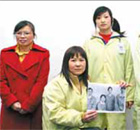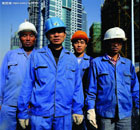Editorials
Thoughtful arrangement
(China Daily)
Updated: 2009-12-21 07:39
 |
Large Medium Small |
Yesterday, President Hu Jintao was in Macao to celebrate the 10th anniversary of its return to the motherland.
He also oversaw the transfer of power from the outgoing Chief Executive Edmund Ho Hau Wah to the Chief Executive-elect Fernando Chui Sai On and the beginning of the new term of the local government.
In 1999, the whole nation erupted in celebration when the city - the first and last European colony in China - was returned according to the Sino-Portuguese Joint Declaration and the Basic Law of Macao.
| ||||
The world had never seen any country managed this way, under a thoughtful arrangement of "one country, two systems", as it was first proposed by Deng Xiaoping, the imaginative leader who guided China's reform and opening up process in the 1980s.
Doubts were high, scorns not rare, and there were many uncertainties for this former Portuguese colony, known only for its run-down gambling industry and occasional gang wars.
Ever since the handover, however, the city has seen considerable growth - its per capita GDP touched $39,000 in 2008, almost triple that of 10 years ago. Unemployment, during the same period, declined from 6.3 percent to 3 percent.
Despite the global recession, the city managed to receive nearly 23 million tourists, 42 times the local population. Chui has pledged that Macao would build itself into a center of all-round leisure services in future.
The central government has never been reluctant to help Macao. In 2003, treaties were signed between the central government and Macao for closer economic cooperation, especially in tourism. The central and SAR governments are also working together to diversify Macao's economy.
Earlier this year, Macao got approval to lease a part of its neighboring Hengqin Island of Guangdong province to relocate the University of Macao, and to expand the city area by some 360 hectares through landfills.
Last week, the world's longest cross-sea bridge started construction. This will connect the city with both Hong Kong and Zhuhai, a city on the mainland.
More than any dry statistic can indicate, Macao citizens are proud that, with its openness and tolerance, their city remains a multi-faceted and harmonious society blending the cultures of the East and the West.
Portuguese culture has continued to thrive and religious freedom has been respected. Youngsters born from mixed family backgrounds are encouraged to bring their international expertise into the SAR government and, through it, to the central government.
No more misgivings about the future can stand now that a recent poll, by a local academic institution, has shown a high level of satisfaction (80 plus percent) among Macao citizens with the implementation of national policies in their homeland.
Indeed, the "one country, two systems" policy is not just helping Macao. It is benefiting the entire Chinese nation by creating unprecedented prosperity and harmony.
(China Daily 12/21/2009 page4)













